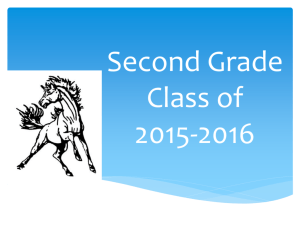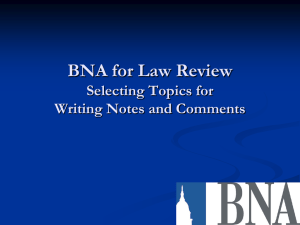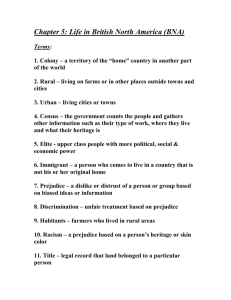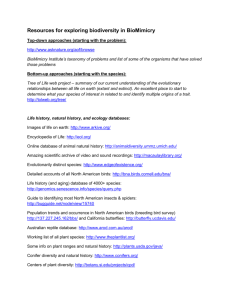– S Corporations BUS 225G
advertisement
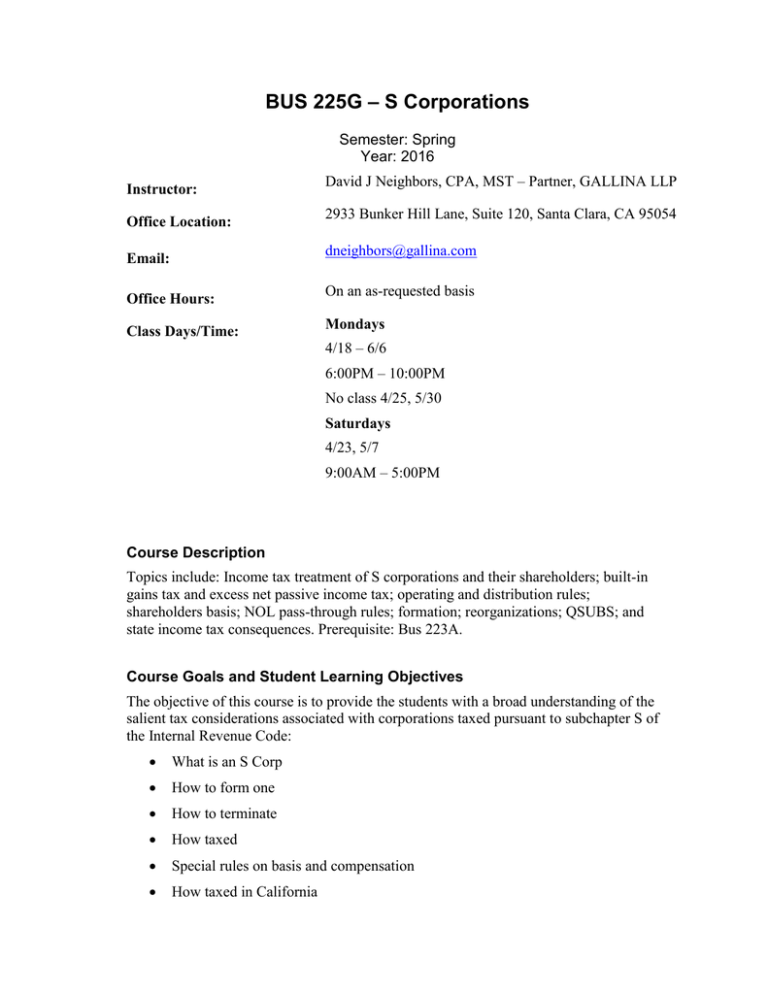
BUS 225G – S Corporations Semester: Spring Year: 2016 Instructor: Office Location: David J Neighbors, CPA, MST – Partner, GALLINA LLP 2933 Bunker Hill Lane, Suite 120, Santa Clara, CA 95054 dneighbors@gallina.com Email: Office Hours: Class Days/Time: On an as-requested basis Mondays 4/18 – 6/6 6:00PM – 10:00PM No class 4/25, 5/30 Saturdays 4/23, 5/7 9:00AM – 5:00PM Course Description Topics include: Income tax treatment of S corporations and their shareholders; built-in gains tax and excess net passive income tax; operating and distribution rules; shareholders basis; NOL pass-through rules; formation; reorganizations; QSUBS; and state income tax consequences. Prerequisite: Bus 223A. Course Goals and Student Learning Objectives The objective of this course is to provide the students with a broad understanding of the salient tax considerations associated with corporations taxed pursuant to subchapter S of the Internal Revenue Code: What is an S Corp How to form one How to terminate How taxed Special rules on basis and compensation How taxed in California Planning, etc. Class sessions will consist of lectures, an analysis of statutory material, an examination of relevant judicial and administrative authority, and a discussion of the assigned problems. Each student is expected to have read the appropriate sections of the text, the statutory sections and the cases and rulings as noted in the BNA readings, syllabus and in class. Each student also may be assigned one or more problems on which he or she will be expected to lead a class discussion. Required Texts/Readings Textbooks BNA Portfolios 730 and 731 (available online via SJSU Library access) Code, regulations and cases Forms and instructions noted in the BNA readings and in class Research materials link – http://www.sjsu.edu/people/annette.nellen/website/ClassInfo.html#Access Final Exam Monday June 6th between 6pm and 10pm (in class). The final exam is open note – one page front and back (no computers or similar electronic devices are permitted including using phones for calculations – you will be provided calculators if needed) and constitutes 75% of your overall grade. It will consist of 20 multi-choice questions (1/3 of the final exam) and 2 essay questions (2/3 of the final exam). Grading Grades will follow the pattern of 90% or higher for an A, 80% or higher for a B, 70% or higher for a C, etc. Plus and minus grades will be used for scores within two percentage points of the grade breakpoint. There are other communication assignments as well. Distribution of points is shown later in this syllabus. University Policies Academic integrity Students should know the University’s Academic Integrity Policy that is available at http://www.sa.sjsu.edu/download/judicial_affairs/Academic_Integrity_Policy_S07-2.pdf Your own commitment to learning, as evidenced by your enrollment at San Jose State University and the University’s integrity policy, require you to be honest in all your academic course work. Faculty members are required to report all infractions to the office of Student Conduct and Ethical Development. The website for Student Conduct and Ethical Development is available at http://www.sa.sjsu.edu/judicial_affairs/index.html Instances of academic dishonesty will not be tolerated. Cheating on exams or plagiarism (presenting the work of another as your own, or the use of another person’s ideas without giving proper credit) will result in a failing grade and sanctions by the University. For this class, all assignments are to be completed by the individual student unless otherwise specified. If you would like to include in your assignment any material you have submitted, or plan to submit for another class, please note that SJSU’s Academic Policy F06-1 requires approval of instructors. Campus Policy in Compliance with the American Disabilities Act If you need course adaptations or accommodations because of a disability, or if you need to make special arrangements in case the building must be evacuated, please make an appointment with me as soon as possible, or see me during office hours. Presidential Directive 97-03 requires that students with disabilities requesting accommodations must register with the DRC (Disability Resource Center) to establish a record of their disability. SJSU Writing Center (Optional) The SJSU Writing Center is located in Room 126 in Clark Hall. It is staffed by professional instructors and upper-division or graduate-level writing specialists from each of the seven SJSU colleges. Our writing specialists have met a rigorous GPA requirement, and they are well trained to assist all students at all levels within all disciplines to become better writers. The Writing Center website is located at http://www.sjsu.edu/writingcenter/ Course Schedule Schedule is subject to change with fair notice. Week 1 Date 4/18/16 Topics, Readings, Assignments, Deadlines 2 4/23/16 (Sat.) Administrative Matters / Course Overview (BNA 730, I) – IRC §1361-1379 Choice of Entity Considerations / Certain Judicial Doctrines (BNA 731, I) IRC §1363 S Corporations – in general Assignment – review 1120-S instructions Qualification as a “Small Business Corporation” (BNA 730, II.A-E) IRC §1361-1362 Formation of an S Corporation (BNA 730, V) IRC §1371 3 4 5/2/16 5/7/16 (Sat.) Formation of an S Corporation (cont.) (BNA 730, II.F-G) IRC §1371 Electing S Corporation Status (BNA 730, III) IRC §1362 Certain Procedural Considerations (BNA 730, VI) IRC§6037 Assignment – review form 2553 instructions Taxation of an S Corporation (BNA 731, I (cont.) BNA 730, VII) IRC §1375 Tax Treatment of Income/Losses to Shareholders (BNA 731, II) Shareholder Basis in Stock and Debt (BNA 731, III) Treatment of S Corporation Distributions (BNA 731, II) IRC §1367 Reasonable Compensation Considerations (BNA 731, V. C) Certain Tax Accounting Considerations (BNA 731, IX.D-E) Termination of an S Corporation (BNA 730, IV) IRC §1361, 1362 Assignment: compare and contrast reasonable compensation cases – JD & Associates, Case 4:08-cv-00442-RP-CFB, Watson, 668 F.3d 1008 (8th Cir., 2012) - , and McAlary, TC Summary Opinion 2013.62. 5 5/9/16 Group Presentations 6 5/16/16 Redemptions, Liquidations, and M&A (BNA 731, III) IRC §1363, 1371 Foreign Operations (BNA 731, IV) IRC §956 Class Review (BNA 730; BNA 731) 7 5/23/16 8 6/6/16 FINAL (in class) Goals MST Program Learning Goals Complex and 1 Multijurisdictional To identify, understand and resolve complex and multijurisdictional tax issues within the context of our global economy and society. Tax Issues Research 2 Skills 3 Analytical Skills To learn research skills for exploring both familiar and novel areas of the tax law and to communicate the findings in clear terms. To develop conceptual and analytic skills with real world applications. 4 Tax Policy To appreciate tax policy issues and foundations of the tax law. Ethical Implications 5 of Tax Practice To understand the ethical implications of tax practice. Tax Practice 6 and Career Advancement To develop skills for effective tax practice including keeping current, interacting with others, and career advancement.
